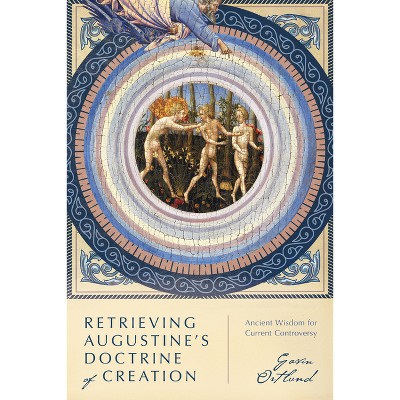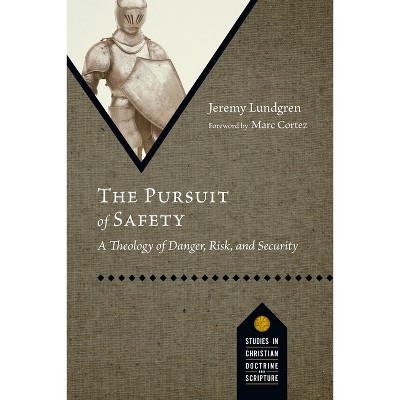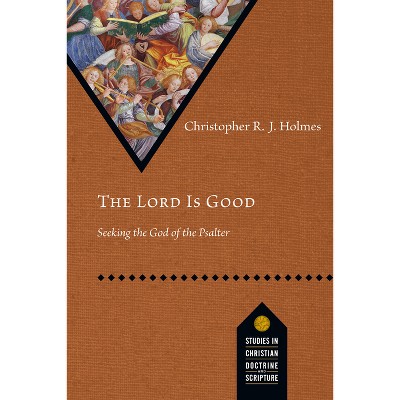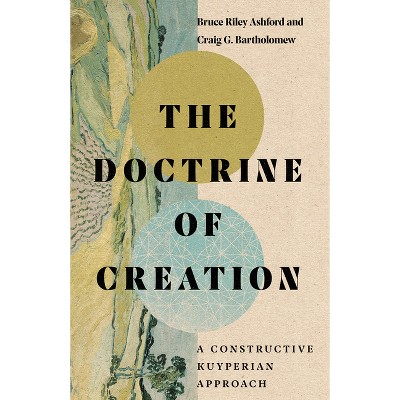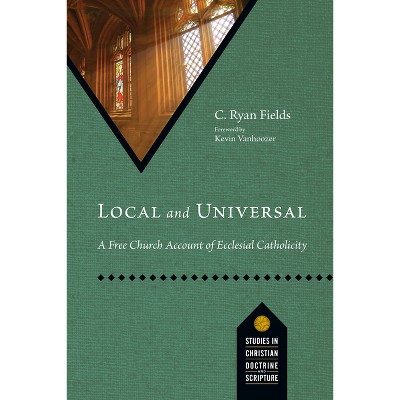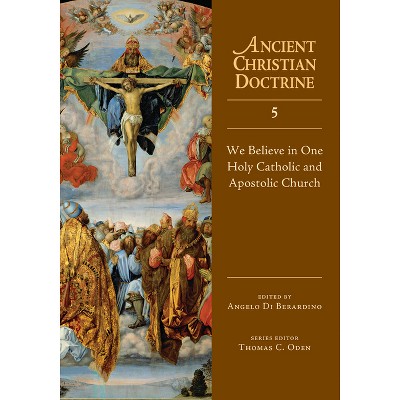About this item
Highlights
- Oliver Crisp offers a set of essays that analyze the significance and contribution of several great thinkers in the Reformed tradition, ranging from John Calvin and Jonathan Edwards to Karl Barth.
- About the Author: Oliver D. Crisp (Ph.D., King's College, London) is reader in theology at the University of Bristol and visiting lecturer at Regent College in Vancouver.
- 209 Pages
- Religion + Beliefs, Christian Theology
Description
About the Book
Oliver Crisp offers a set of essays that analyze the significance and contribution of several great thinkers in the Reformed tradition, ranging from John Calvin and Jonathan Edwards to Karl Barth. Crisp explains how these thinkers navigated pressing theological issues and how contemporary readers can draw relevant insights from the tradition.
Book Synopsis
Oliver Crisp offers a set of essays that analyze the significance and contribution of several great thinkers in the Reformed tradition, ranging from John Calvin and Jonathan Edwards to Karl Barth. Crisp explains how these thinkers navigated pressing theological issues and how contemporary readers can draw relevant insights from the tradition.
Review Quotes
"A living Christian theological tradition feeds on itself, revisiting and foraging in the writings of the doctors of the church, some great, some less so. Oliver Crisp once again proves himself to be an admirably informative guide to the Reformed tradition, and generous, firm and fair in his judgments. Retrieving Doctrine will further enhance his reputation as a historically sensitive dogmatic theologian who puts the tools of analytic philosophy to good use."
"A living Christian theological tradition feeds on itself, revisiting and foraging in the writings of the doctors of the church, some great, some less so. Oliver Crisp once again proves himself to be an admirably informative guide to the Reformed tradition, and generous, firm and fair in his judgments. Retrieving Doctrine will further enhance his reputation as a historically sensitive dogmatic theologian who puts the tools of analytic philosophy to good use."
--Paul Helm, Regent College, Vancouver"A sustained conversation with voices representing the Reformed tradition at its very best. In this series of judicious and illuminating studies, Dr. Crisp looks to the lessons of the past to inform our present-day engagements with some of the core doctrines of Christian faith."
"Analytic theology is sometimes criticized for being both detached from the Christian tradition and insensitive to pastoral concerns. Such criticisms miss the mark entirely with respect to this clear and penetrating study by Oliver Crisp. He engages some of the giants of the Reformed tradition (such stalwarts as Calvin and Turretin as well as Edwards, Barth and other innovators) with precision and grace. The result is a feast of historically informed and pastorally attuned analytic theology that is both informative and edifying."
"Elegant and penetrating, these studies of thinkers from the Reformed tradition exemplify the courteous engagement with tradition which characterizes the best constructive theology."
"In the so-called evangelical world, it is refreshing to see monuments of Reformed thinking in adjacent examinations, opening the horizon of their overlapping theology to what can often be narrowed divisions within the Reformed church."
"In the so-called evangelical world, it is refreshing to see monuments of Reformed thinking in adjacent examinations, opening the horizon of their overlapping theology to what can often be narrowed divisions within the Reformed church."
--Dru Johnson, Themelios 37.1"Oliver Crisp argues here for the ongoing vitality of several diverse Reformed traditions. Yet as this book shows, 'traditional' thinking need not be dry or unimaginative. Indeed, the real energy of Crisp's writing lies in its restrained speculative impulse. He is drawn to the curious, untidy edges of Reformed tradition, the unexplored (or largely forgotten) tensions and problems which the tradition has produced. In the midst of these tensions, Crisp finds new possibilities for contemporary theology. Even where he disagrees with a thinker from the past, his engagement is marked by a friendly attentiveness and a commitment to the ongoing promise of Reformed dogmatics."
"Oliver Crisp has already established himself as one of the smartest theologians of his generation. Setting his analytic tools to work on a handful of the Reformed tradition's brightest lights, Crisp here contributes to our understanding of both them and their subject matter. The result is an eminently clear, incisive book that I heartily commend to anyone interested in Reformed theology."
"Rooted in careful historical scholarship and patient reading of texts, this volume offers a series of explorations on vital themes in the Reformed tradition. This is a lively and important collection that will repay the attention of all those committed to a historically grounded, constructive appropriation of Reformed theology today."
"This volume calls for careful and reflective reading. It is a model of how to engage with historical figures and to hear their voices in the past and bring their wisdom into the present. Understanding the past and the historical context is essential, but retrieving those voices for contemporary theology is no less important. Crisp's work is highly recommended both for the content of these essays and as a model to be followed."
"This volume calls for careful and reflective reading. It is a model of how to engage with historical figures and to hear their voices in the past and bring their wisdom into the present. Understanding the past and the historical context is essential, but retrieving those voices for contemporary theology is no less important. Crisp's work is highly recommended both for the content of these essays and as a model to be followed."
--Glenn R. Kreider, Bibliotheca Sacra, October-December 2012About the Author
Oliver D. Crisp (Ph.D., King's College, London) is reader in theology at the University of Bristol and visiting lecturer at Regent College in Vancouver. His previous titles include Jonathan Edwards and the Metaphysics of Sin and Divinity and Humanity.
Shipping details
Return details
Trending Non-Fiction







